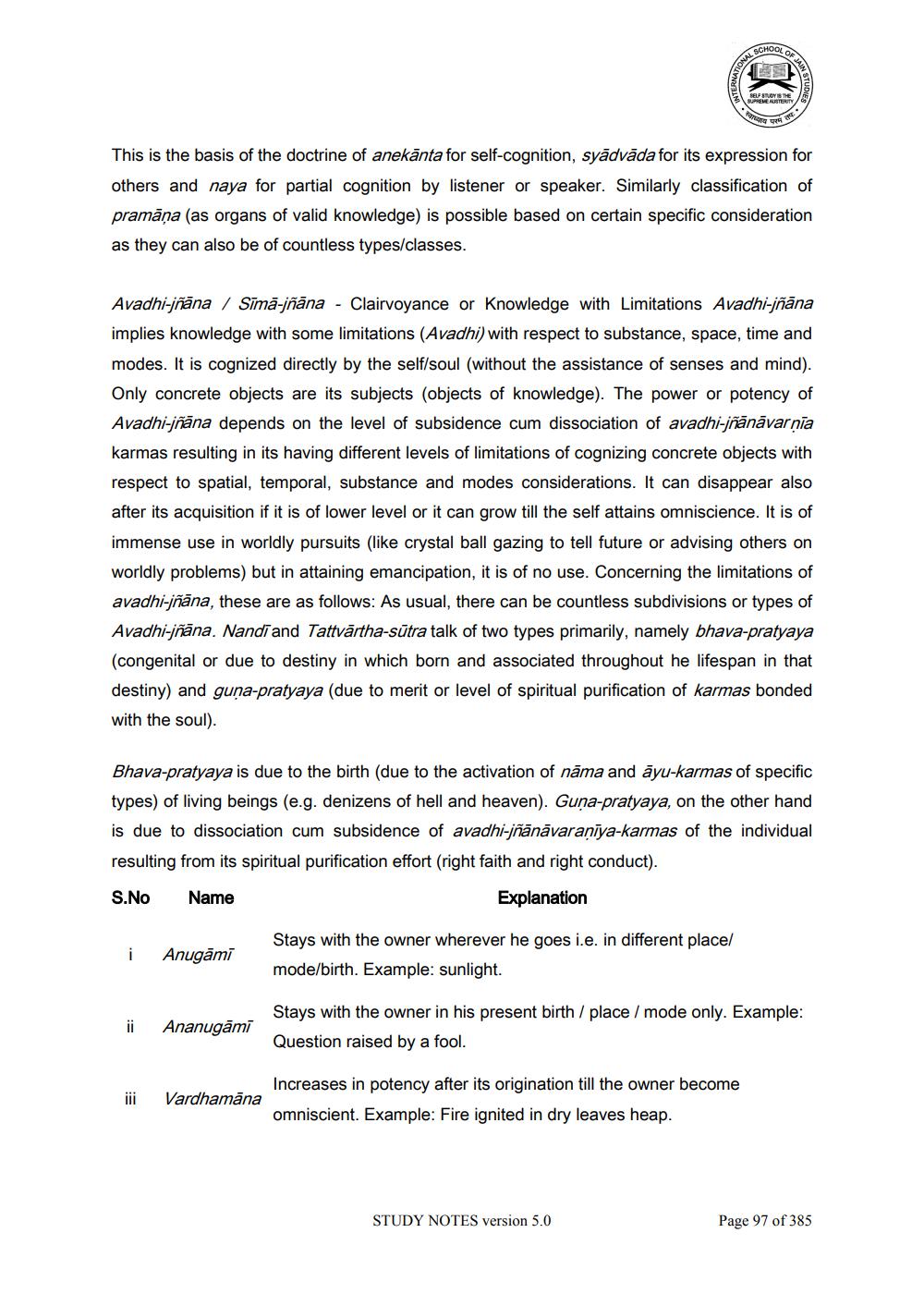________________
This is the basis of the doctrine of anekānta for self-cognition, syādvāda for its expression for others and naya for partial cognition by listener or speaker. Similarly classification of pramāņa (as organs of valid knowledge) is possible based on certain specific consideration as they can also be of countless types/classes.
Avadhi-jñāna / Simā-jñāna - Clairvoyance or Knowledge with Limitations Avadhi-jñāna implies knowledge with some limitations (Avadhi) with respect to substance, space, time and modes. It is cognized directly by the self/soul (without the assistance of senses and mind). Only concrete objects are its subjects (objects of knowledge). The power or potency of Avadhi-jñāna depends on the level of subsidence cum dissociation of avadhi-jñānāvarnia karmas resulting in its having different levels of limitations of cognizing concrete objects with respect to spatial, temporal, substance and modes considerations. It can disappear also after its acquisition if it is of lower level or it can grow till the self attains omniscience. It is of immense use in worldly pursuits (like crystal ball gazing to tell future or advising others on worldly problems) but in attaining emancipation, it is of no use. Concerning the limitations of avadhi-jñāna, these are as follows: As usual, there can be countless subdivisions or types of Avadhi-jñāna. Nandi and Tattvārtha-sūtra talk of two types primarily, namely bhava-pratyaya (congenital or due to destiny in which born and associated throughout he lifespan in that destiny) and guna-pratyaya (due to merit or level of spiritual purification of karmas bonded with the soul).
Bhava-pratyaya is due to the birth (due to the activation of nāma and ayu-karmas of specific types) of living beings (e.g. denizens of hell and heaven). Guna-pratyaya, on the other hand is due to dissociation cum subsidence of avadhi-jñānāvaranīya-karmas of the individual resulting from its spiritual purification effort (right faith and right conduct). S.No Name
Explanation
i
Anugāmi
Stays with the owner wherever he goes i.e. in different place! mode/birth. Example: sunlight.
ii
Ananugāmi
Stays with the owner in his present birth / place / mode only. Example: Question raised by a fool.
iii
Vardhamāna
Increases in potency after its origination till the owner become omniscient. Example: Fire ignited in dry leaves heap.
STUDY NOTES version 5.0
Page 97 of 385




